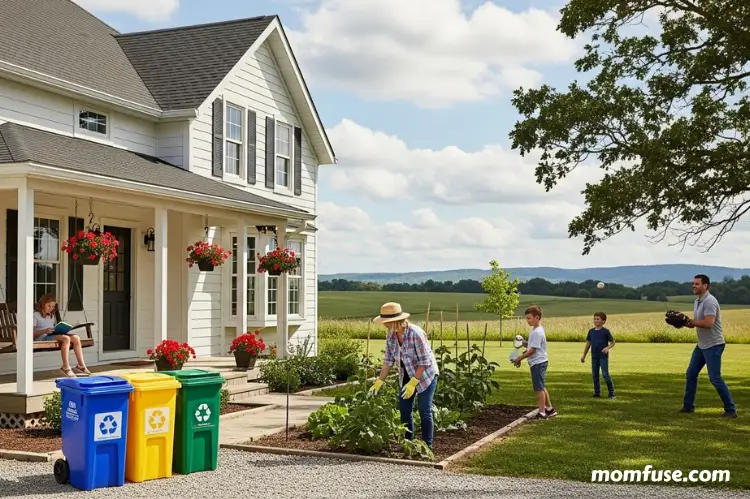Rural living gives families the gift of space, nature, and a quieter lifestyle, but it also brings a unique challenge that many people do not expect. Waste builds up quickly when there are fewer pick-up services, no curbside recycling, and long drives to the nearest drop-off center. For families raising kids in rural areas, learning how to recycle and manage waste responsibly becomes an important part of everyday life.
This guide walks parents through simple, practical steps to reduce waste, recycle more, and keep the home clean in a way that kids can easily understand.
Start With What Your Family Uses the Most

In rural areas, household waste often comes from everyday activities that families do together. Groceries, outdoor projects, school supplies, hobby materials, and seasonal chores all create a mix of recyclables and items that need special handling.
Help kids identify the most common categories:
- Cardboard
- Paper
- Plastics labeled 1 and 2
- Aluminum and metal
- Old toys and clothes
- Outdoor clutter from sheds or yards
Sorting these items early helps the whole family stay organized.
Teach Kids Simple Recycling Habits
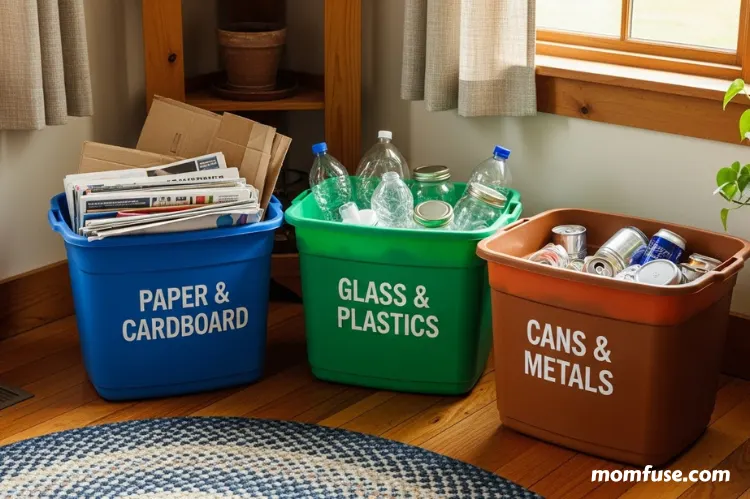
Children learn quickly when the rules are clear and consistent. Families in rural areas can make recycling feel practical and enjoyable by setting up a small sorting station at home. Use labeled bins, color-coded tubs, or simple handwritten signs. Kids often enjoy placing items in the right spot once there is a clear system.
Explain what happens after items leave the home. Kids are more motivated when they understand why recycling matters.
Understand the Real Challenges Rural Families Face

Recycling is harder outside metro areas. According to the New Mexico Environment Department, rural counties recycle significantly less than cities because materials must be transported long distances to reach processing facilities. Chaves County is a good example.
Most rural households do not have curbside recycling and must rely on Roswell’s centralized drop-off locations or special collection events.
This distance makes it important for families to plan ahead, especially during large cleanouts or seasonal projects.
When families deal with big piles of clutter, many choose a dumpster rental Roswell NM service to keep the process organized and prevent recyclable materials from being mixed into household trash. It is a simple way to handle bulky waste while still protecting the environment.
Make Recycling Part of Daily Family Life
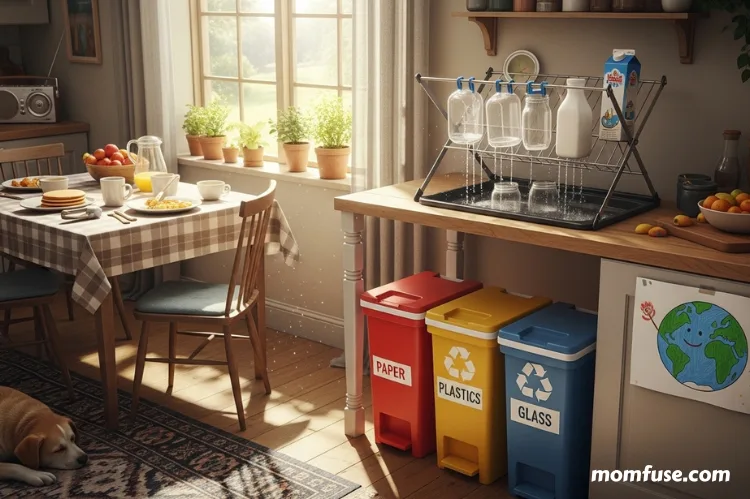
Small habits make a big difference:
- Break down cardboard boxes right away
- Rinse plastic containers before tossing them
- Set aside metal cans for your next trip to a drop-off site
- Keep one bin for donations so kids learn to pass items forward
- Help children choose toys or clothes they no longer use
These habits help kids understand that reducing waste is something everyone can do.
Turn Outdoor Spaces Into Teaching Moments
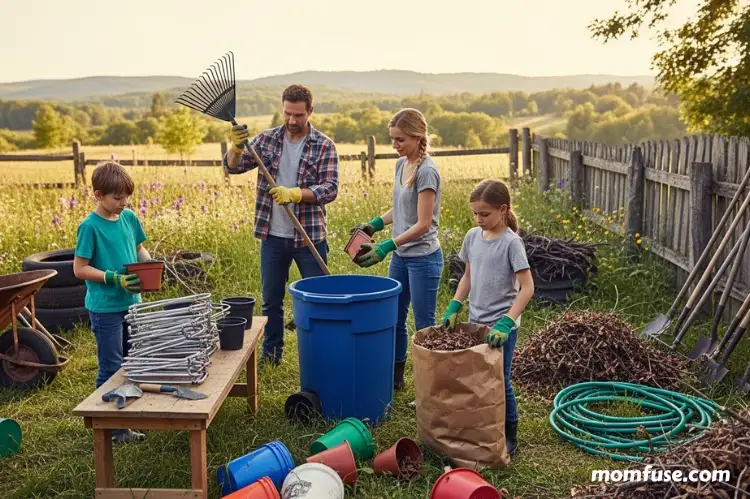
Rural homes often have large yards, sheds, and outdoor storage areas. These spaces can collect broken tools, old sports equipment, leftover lumber, and worn-out gardening supplies. Use outdoor cleanup days as learning opportunities.
Show kids how to:
- Separate metal pieces for recycling
- Identify plastics that can and cannot be reused
- Sort yard waste from household debris
- Look for items that can be donated or repaired
These lessons help children build responsibility and care for the land around them.
Plan Seasonal Cleanouts to Stay Ahead
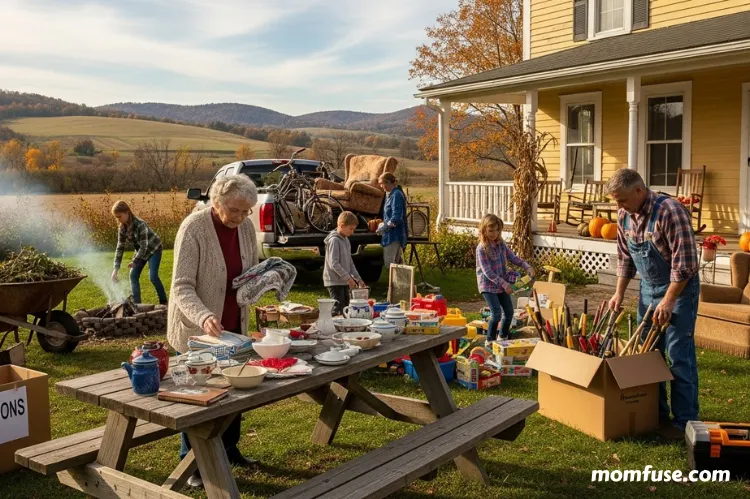
Rural families often benefit from choosing two or three weekends a year for a full-home reset. Spring, late summer, and early fall are ideal times. Kids can help carry lightweight items, gather recyclables, or place donations into bags. A seasonal rhythm keeps clutter from building up and makes future cleanouts far easier.
Recycling Helps Families Build Stronger Homes
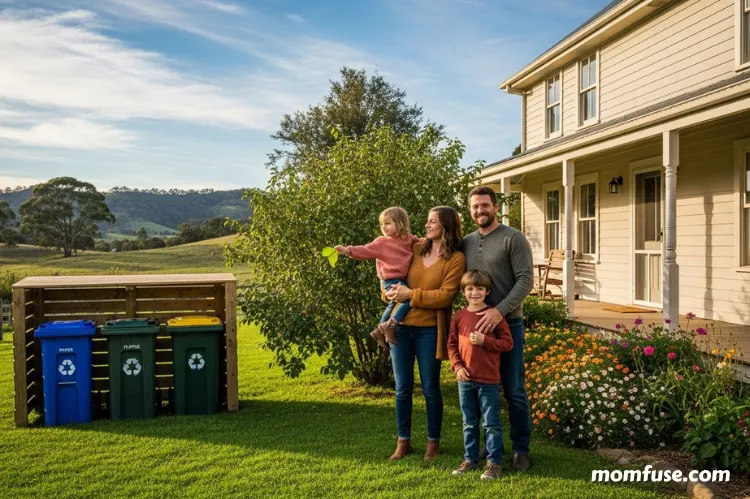
Recycling in rural areas takes a little more effort, but it also gives families a chance to work together, care for their land, and teach children meaningful habits. With the right approach, every household can reduce waste and create a cleaner, more organized home.
Read Next: Moving with Kids: Stress-Free Declutter Tips Guide

